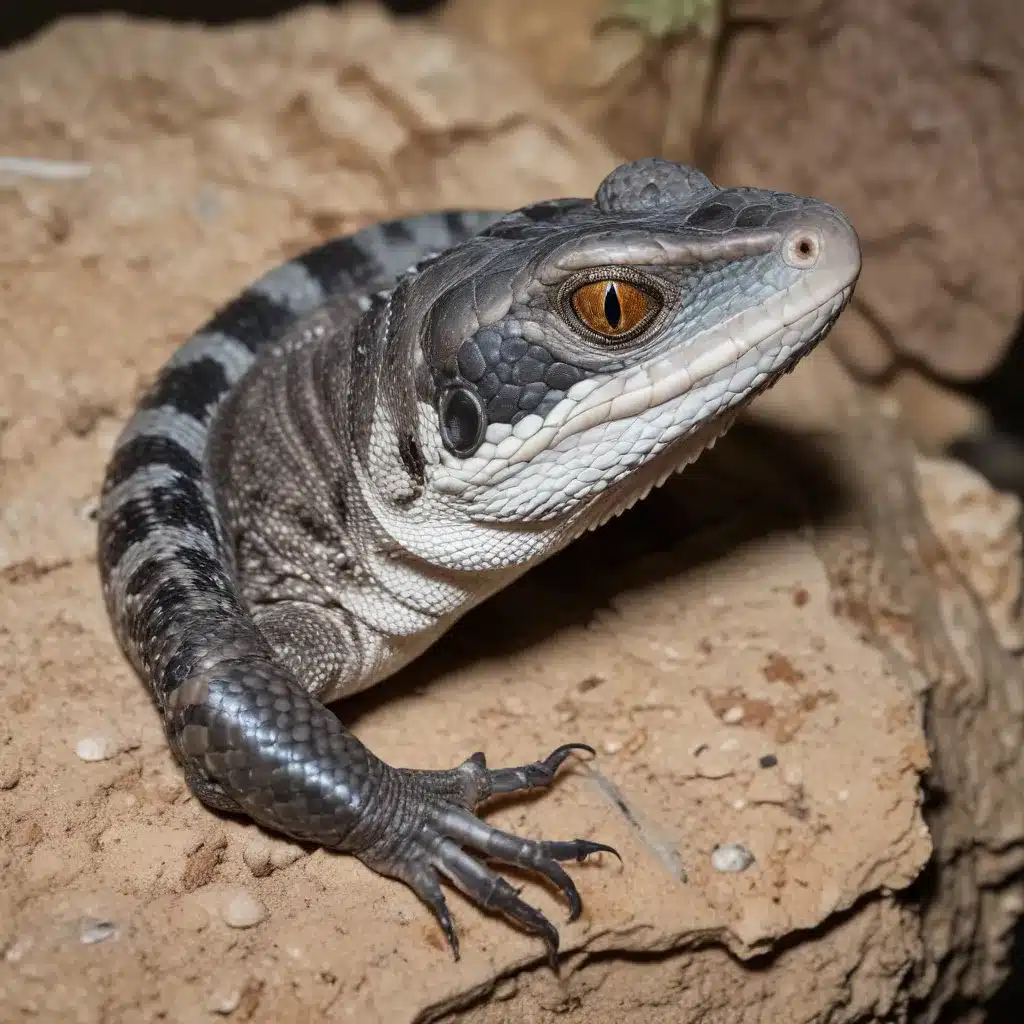
Understanding Reptile Parasites
Maintaining the health and well-being of captive reptile populations is a crucial aspect of responsible reptile ownership and breeding. One of the primary challenges reptile enthusiasts face is the management of parasitic infestations, which can have serious consequences for the reptiles’ overall wellness. In this comprehensive guide, we will explore the various types of parasites that can affect captive reptiles, effective prevention and treatment strategies, and the importance of adhering to legal requirements for selling exotic reptile species.
Reptiles, like many other animals, can harbor a wide range of parasitic organisms, including protozoa, nematodes, cestodes, and trematodes. These parasites can be introduced into captive environments through various means, such as contaminated food, water, or substrate, as well as through the introduction of new reptiles into the population. Understanding the life cycles and transmission routes of these parasites is crucial for developing effective management strategies.
Identifying Common Reptile Parasites
Protozoan Parasites
Protozoan parasites, such as Cryptosporidium and Giardia, are single-celled organisms that can cause significant gastrointestinal issues in reptiles. These parasites are often transmitted through contaminated water or food sources and can lead to diarrhea, malnutrition, and dehydration if left untreated.
Nematode Parasites
Nematode parasites, or roundworms, are elongated, unsegmented worms that can infect various organs and systems within reptiles. Some common nematode parasites include Strongyloides and Capillaria, which can cause respiratory problems, gastrointestinal distress, and even organ damage if left unchecked.
Cestode Parasites
Cestode parasites, or tapeworms, are flatworms that can live within the gastrointestinal tract of reptiles. These parasites can interfere with the host’s nutrient absorption and lead to weight loss, malnutrition, and other health issues.
Trematode Parasites
Trematode parasites, or flukes, are flat, leaf-shaped worms that can infect the liver, lungs, and other organs of reptiles. These parasites are often associated with poor water quality and can cause significant organ damage if left untreated.
Preventive Measures for Parasite Control
Effective prevention is the key to maintaining a healthy captive reptile population and minimizing the risk of parasitic infestations. Here are some essential preventive measures:
-
Proper Habitat Maintenance: Ensuring high-quality substrate, clean water sources, and proper enclosure hygiene can significantly reduce the risk of parasitic infections. Regularly cleaning and disinfecting the enclosure is crucial.
-
Quarantine New Reptiles: All newly acquired reptiles should be quarantined and tested for parasites before being introduced into an existing population. This helps prevent the introduction of new parasites into the captive environment.
-
Fecal Examinations: Regular fecal examinations by a veterinarian can help detect the presence of parasites in a timely manner, allowing for early intervention and treatment.
-
Comprehensive Nutrition: A balanced and nutritious diet can help boost the reptiles’ immune systems, making them more resilient against parasitic infestations.
-
Proper Pest Control: Controlling the presence of insects, rodents, and other potential vectors can help prevent the introduction and spread of parasites within the captive environment.
Effective Treatment Strategies
If a parasitic infestation is detected, prompt and appropriate treatment is essential to ensure the well-being of the affected reptiles. Treatment options may include:
-
Antiparasitic Medications: Veterinary-prescribed antiparasitic medications, such as fenbendazole or praziquantel, can be effective in treating various types of parasitic infections. It is crucial to follow the veterinarian’s instructions carefully and complete the full course of treatment.
-
Environmental Decontamination: In addition to treating the affected reptiles, thorough cleaning and disinfection of the entire enclosure, including substrate, hiding places, and water sources, is essential to eliminate any remaining parasites and prevent reinfection.
-
Quarantine and Monitoring: Infected reptiles should be isolated from the rest of the population during treatment and closely monitored for any signs of improvement or relapse.
-
Supportive Care: Providing appropriate supportive care, such as maintaining proper temperature, humidity, and hydration levels, can help the reptiles recover more effectively from the parasitic infestation.
Legal Considerations for Exotic Reptile Sales
When it comes to the sale of exotic reptile species, it is crucial to adhere to all applicable legal requirements and regulations. This ensures the well-being of the reptiles and the safety of both the buyers and sellers.
Exotic Reptiles for Sale is committed to operating within the legal framework and providing guidance to our customers on the necessary permits, licenses, and documentation required for the purchase and sale of exotic reptiles.
Some key legal considerations include:
-
Species-Specific Regulations: Certain reptile species may be subject to specific regulations or restrictions, such as the Convention on International Trade in Endangered Species of Wild Fauna and Flora (CITES) or state-level wildlife regulations. Ensuring compliance with these regulations is essential.
-
Licensing and Permits: Individuals or businesses involved in the breeding, sale, or transportation of exotic reptiles may be required to obtain appropriate licenses and permits from local, state, or federal authorities.
-
Health Certificates and Documentation: The sale of exotic reptiles may require providing health certificates, vaccination records, and other documentation to ensure the animals’ well-being and compliance with relevant regulations.
-
Record-Keeping and Traceability: Maintaining detailed records of the reptile’s provenance, breeding history, and sale transactions can help ensure transparency and facilitate compliance with legal requirements.
By adhering to these legal guidelines and best practices, reptile enthusiasts and businesses can engage in the responsible sale and ownership of exotic reptiles while prioritizing the health and welfare of the animals.
Conclusion
Maintaining the health and well-being of captive reptile populations is a crucial responsibility for reptile enthusiasts, breeders, and pet owners. By understanding the various types of parasites that can affect reptiles, implementing effective prevention strategies, and employing appropriate treatment methods, reptile owners can ensure the longevity and vitality of their captive populations.
Furthermore, complying with legal requirements for the sale and ownership of exotic reptile species is essential to protect both the animals and the individuals involved in the industry. By prioritizing the welfare of the reptiles and operating within the legal framework, reptile enthusiasts can continue to enjoy and share their passion for these fascinating creatures.


